Publications
Search publications
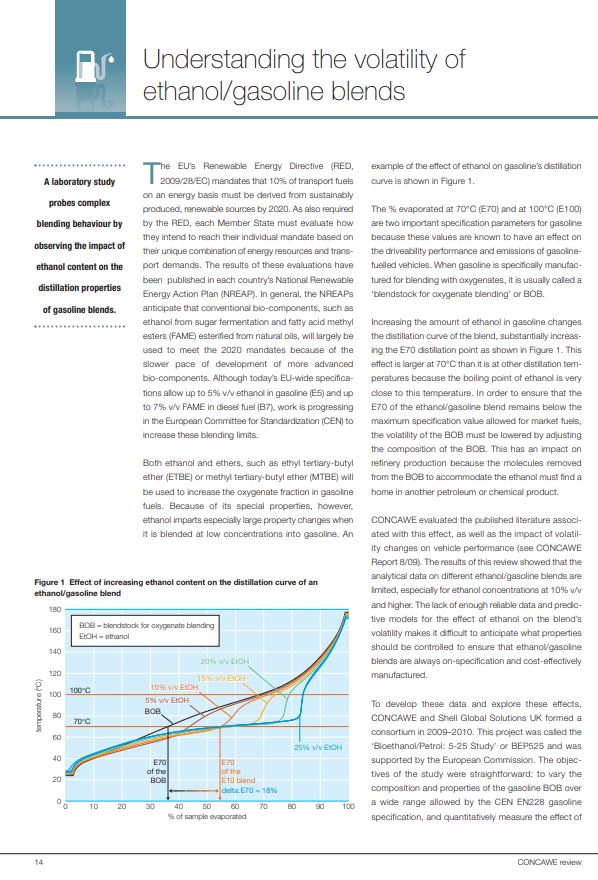
October 1, 2011
Gasoline volatility and vehicle performance
Passenger cars in many parts of the world are now routinely operating on blends of oxygenated molecules and gasoline. Both ethanol and ethers, such as ethyl tertiary-butyl ether (ETBE), are being u...
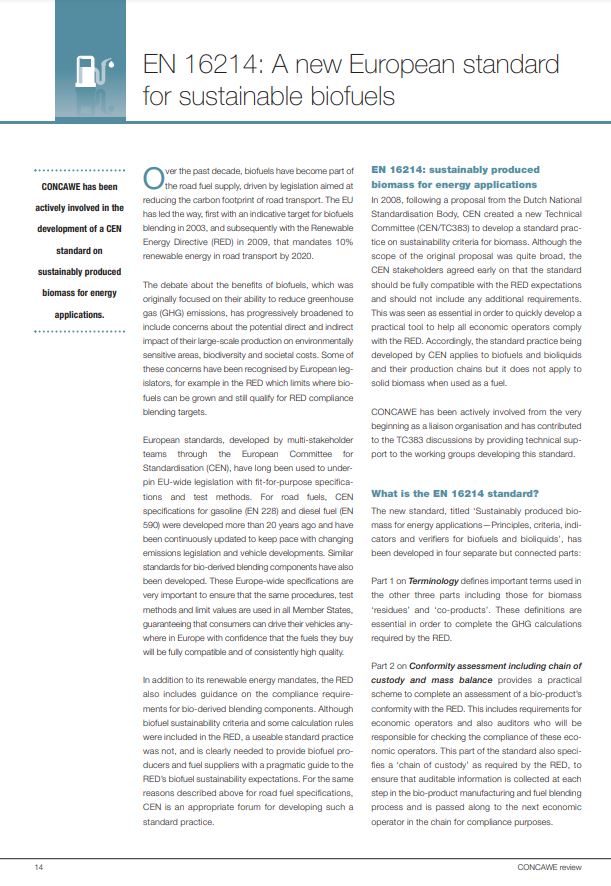
October 1, 2011
EN 16214: A new European standard for sustainable biofuels
Over the past decade, biofuels have become part of the road fuel supply, driven by legislation aimed at reducing the carbon footprint of road transport.
The EU has led the way, first with an ind...

September 13, 2011
Cost effectiveness of emissions abatement options in European refineries
Report No. 6/11 This report explores the cost-effectiveness of emission reductions in European refineries associated with Best Available Techniques (BAT) and illustrates how Associated Emission Level...

August 21, 2011
European downstream oil industry safety performance Statistical summary of reported incidents – 2010
Report no. 5/11: In this seventeenth annual report on European downstream oil industry safety performance, 2010 statistics are presented on work-related personal injuries for the industry’s own empl...

June 17, 2011
A comprehensive review of European epidemiological studies on particulate matter exposure and health
Report no. 4/11: In 2006/2007 CONCAWE’s Health Management Group (through H/STF-27) commissioned a literature survey and review with the primary aim of summarising the current state of science on par...
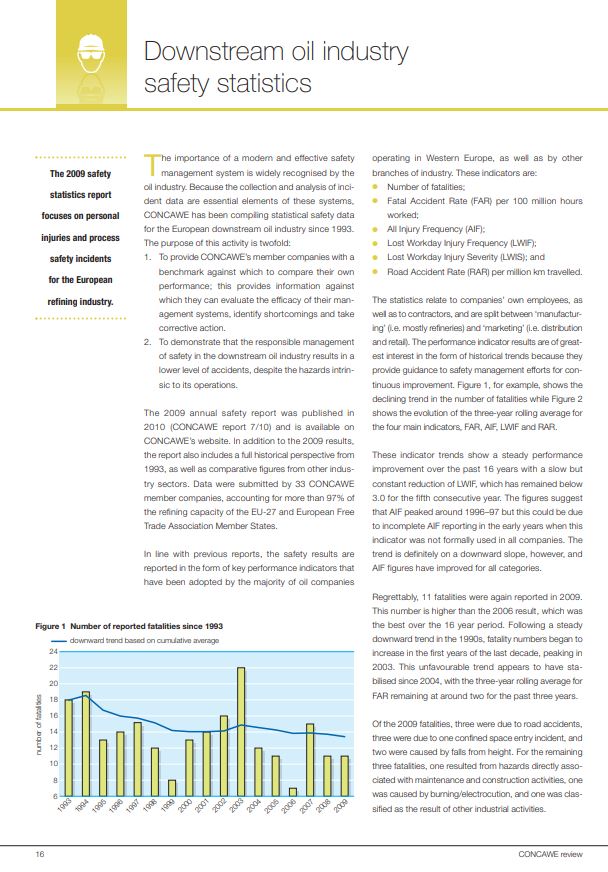
May 1, 2011
Downstream oil industry safety statistics
The 2009 annual safety report was published in 2010 (CONCAWE report 7/10) and is available on CONCAWE’s website. In addition to the 2009 results, the report also includes a full historical perspe...
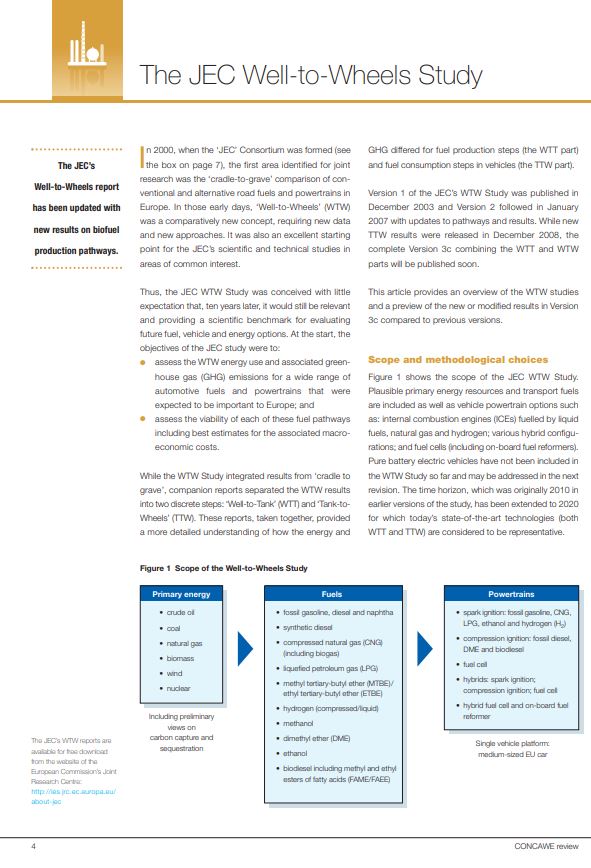
May 1, 2011
The JEC Well-to-Wheels Study
In 2000, when the ‘JEC’ Consortium was formed (see the box on page 7), the first area identified for joint research was the ‘cradle-to-grave’ comparison of conventional and alternative road...
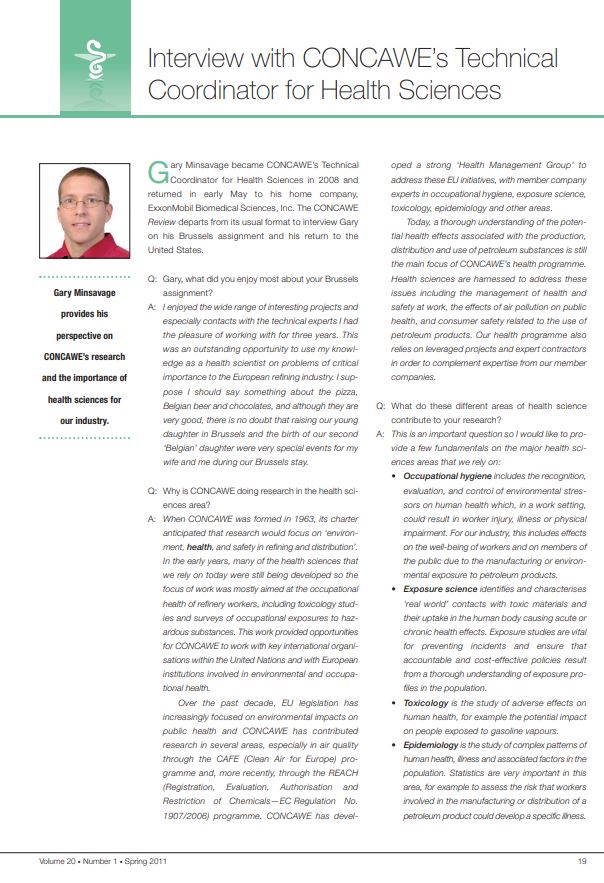
May 1, 2011
Interview with CONCAWE’s Technical Coordinator for Health Sciences
Gary Minsavage became CONCAWE’s Technical Coordinator for Health Sciences in 2008 and returned in early May to his home company, ExxonMobil Biomedical Sciences, Inc.
The CONCAWE Review depart...
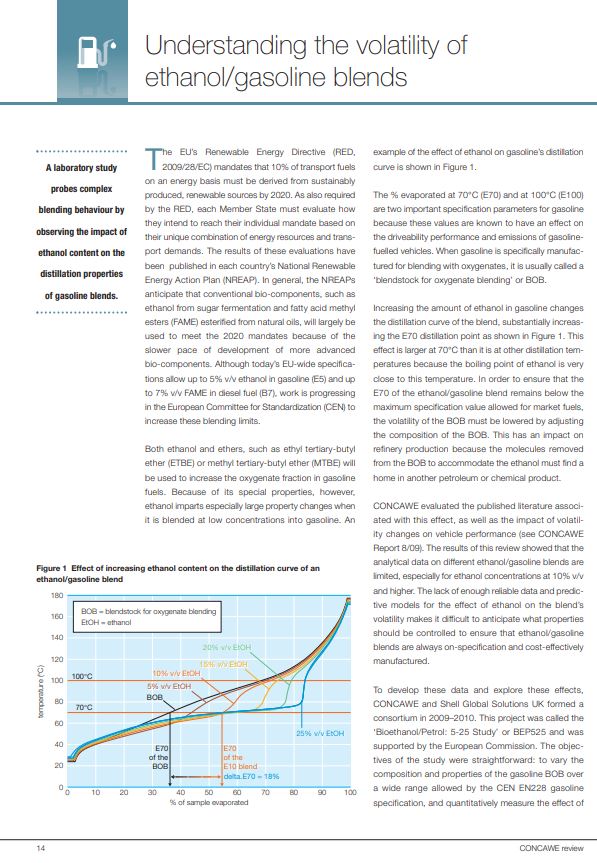
May 1, 2011
Understanding the volatility of ethanol/gasoline blends
The EU’s Renewable Energy Directive (RED, 2009/28/EC) mandates that 10% of transport fuels on an energy basis must be derived from sustainably produced, renewable sources by 2020. As also require...
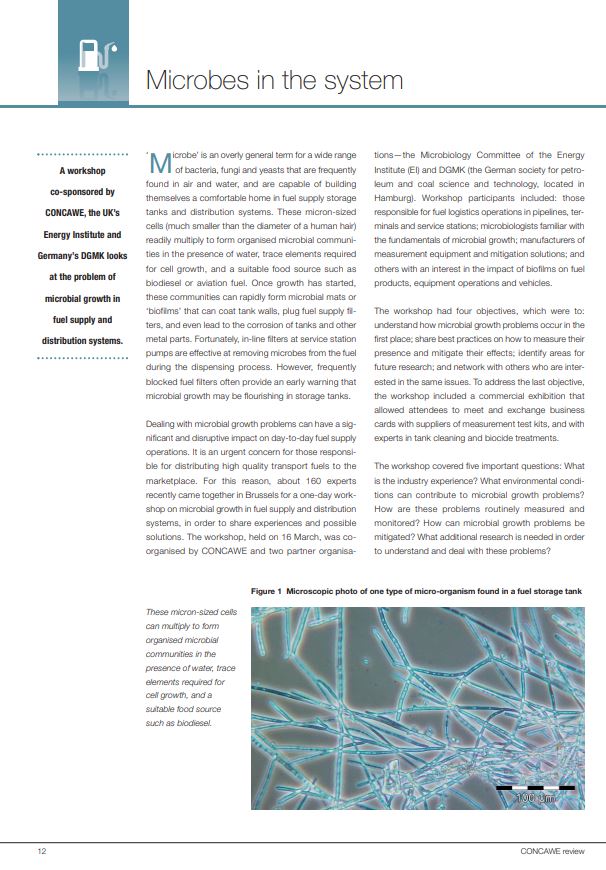
May 1, 2011
Microbes in the system
‘Microbe’ is an overly general term for a wide range of bacteria, fungi and yeasts that are frequently found in air and water, and are capable of building themselves a comfortable home in fuel...
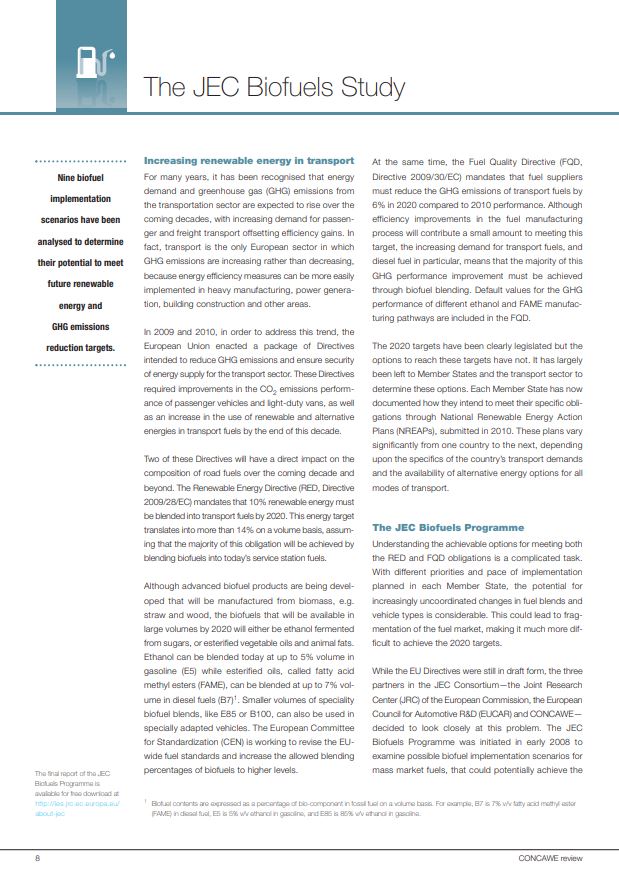
May 1, 2011
The JEC Biofuels Study
For many years, it has been recognised that energy demand and greenhouse gas (GHG) emissions from the transportation sector are expected to rise over the coming decades, with increasing demand for...

April 23, 2011
CONCAWE Review • Spring 2011
Volume 20, Number 1: In 2010, CONCAWE and its Member Companies successfully completed the first phase of REACH (Registration, Evaluation, Authorisation and Restriction of Chemicals). CONCAWE was respo...
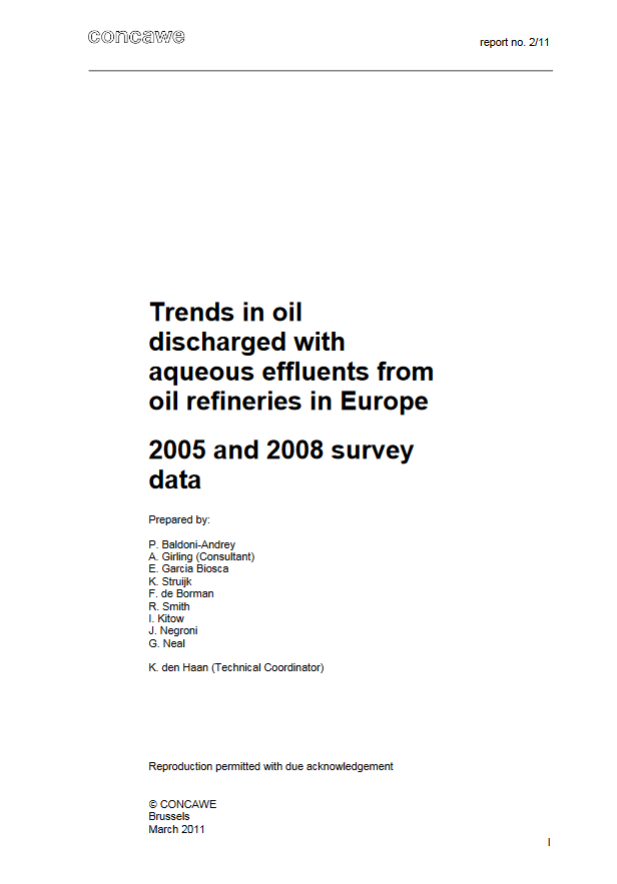
February 2, 2011
Trends in oil discharged with aqueous effluents from oil refineries in Europe 2005 and 2008 survey data
Report no. 2/11: This report summarises data gathered by CONCAWE in surveys of effluent water quantity, oil content and treatment processes for refinery locations situated in the EU-27 countries and t...

January 15, 2011
Environmental sensivity assessment of retail filling stations in selected European countries
Report no. 1/11: The environmental sensitivity of approximately 86,000 retail filling stations in 13 European countries has been assessed with regard to groundwater, surface water and ecological recep...
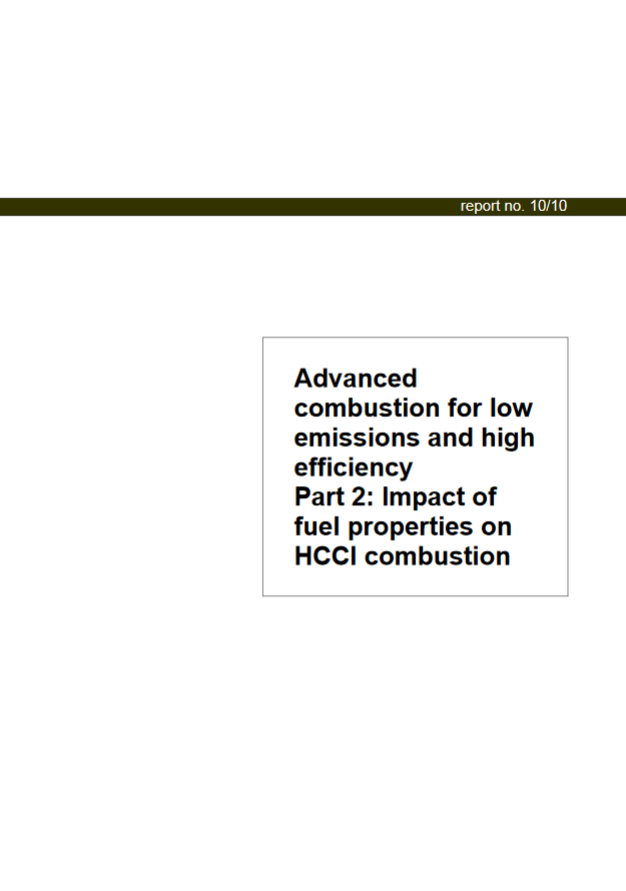
December 21, 2010
Advanced combustion for low emissions and high efficiency – Part 2: Impact of fuel properties on HCCI combustion
Report no. 10/10: A broad range of diesel, kerosene, and gasoline-like fuels has been tested in a single-cylinder diesel engine optimized for advanced combustion performance.These fuels were selected...

December 20, 2010
Advanced combustion for low emissions and high efficiency – Part 1: Impact of engine hardware on HCCI combustion
Report no. 9/10: Two single-cylinder diesel engines were optimised for advanced combustion performance by means of practical and cumulative hardware enhancements that are likely to be used to meet Eur...
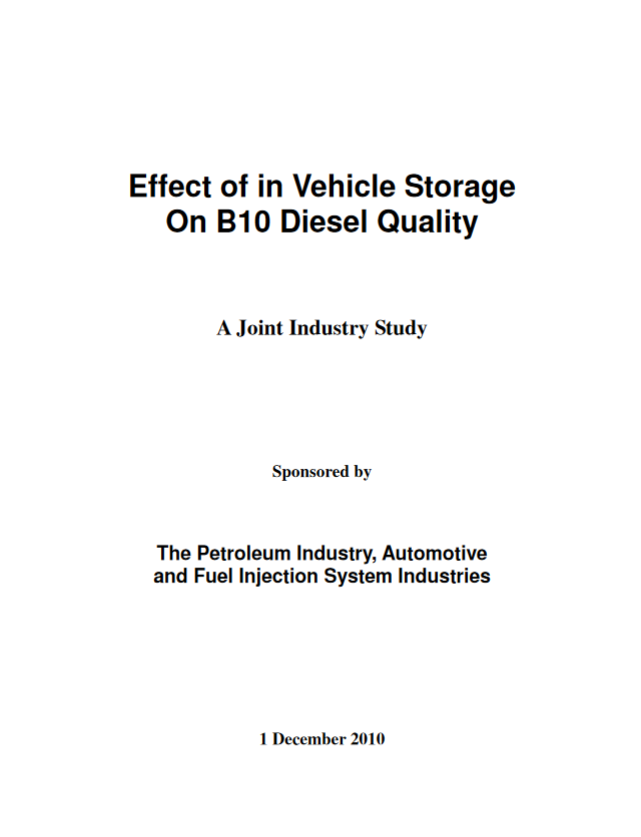
December 1, 2010
Effect of in Vehicle Storage On B10 Diesel Quality
The oxidation stability of diesel fuel containing Fatty Acid Methyl Ester (FAME) is considerably reduced in comparison to conventional diesel. In general, a minimum stability requirement is defined ...

November 13, 2010
Report of a workshop on environment and health: evaluating European air quality research and translating priorities into actions 19-20 January 2009
Report No. 8/10: Scientists, academics, regulators, and representatives of industry and non-governmental organizations from some 18 countries around the world convened at the Bedford Hotel and Congres...

October 21, 2010
European downstream oil industry safety performance: Statistical summary of reported incidents – 2009
Report no. 7/10: The sixteenth such report by CONCAWE, this issue includes statistics on work related personal injuries for the European downstream oil industry’s own employees as well as contractor...
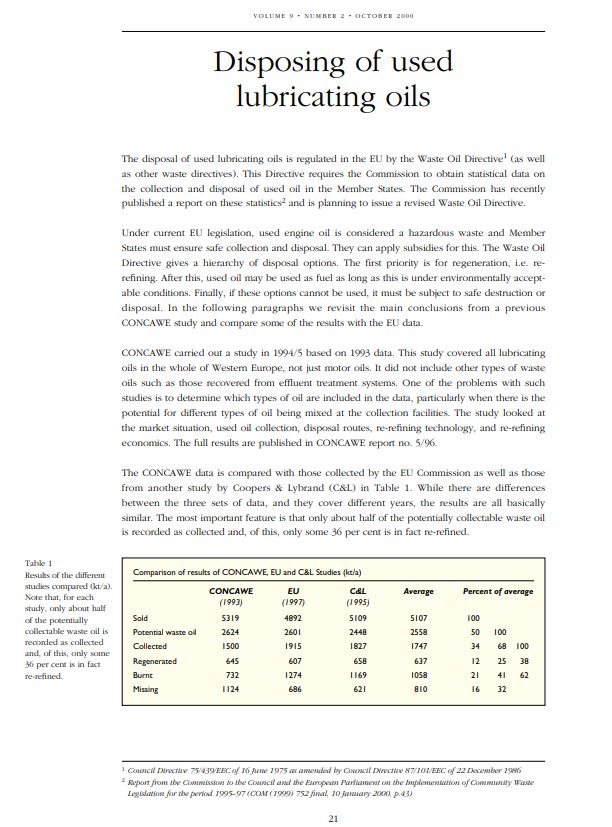
October 1, 2010
Disposing of used lubricating oils
The disposal of used lubricating oils is regulated in the EU by the Waste Oil Directive1 (as well as other waste directives). This Directive requires the Commission to obtain statistical data on the c...
Subscribe to publications
You can subscribe here to receive notifications about new Concawe publications (Technical Reports and the Concawe Review)